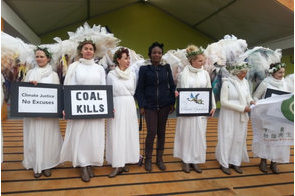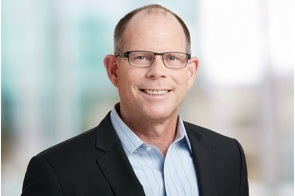Nigeria's climate progress after COP28

Summary
Access Bank, as a key player in the financial sector, has been playing a key role in supporting Nigeria's climate finance goals, leveraging its expertise to mobilise resources for climate-related projects.
Nigeria actively participated at the 2023 United Nations Climate Conference, otherwise known as COP28, which held in Dubai, United Arab Emirates, from the 30th of November to the 12th of December. A high-level delegation of Nigeria’s public officials to the event was led by President Bola Tinubu with some of his prominent cabinet members also participating. Many private sector leaders across various business sectors of the Nigerian economy and civil society organisations (CSOs) working in the country’s environmental sustainability space also actively participated at the event. This underscores the serious attention that climate action is attracting in Nigeria.
After the conference comes the need to crowd in actions for addressing environmental issues in the country and take advantage of the opportunities they present for investment. This will not happen unless deliberate efforts are made by stakeholders across public, private, and social sectors.
Two weeks before the world converged in Dubai for COP28, the World Resources Institute (WRI), a research-based organisation focused on helping to meet people’s essential needs, protect and restore nature, stabilise the climate, and build resilient communities, released its State of Climate Action Report 2023. The report is not quite encouraging. According to its key finding, “Progress made in closing the global gap in climate action remains woefully inadequate – 41 of 42 indicators assessed are not on track to achieve their 2030 targets.” The report says progress for more than half of the indicators for the study remains well off track, such that recent efforts must accelerate at least twofold this decade.
We have to embrace this call to redoubling action. During the COP, Nigeria unveiled its comprehensive national renewable energy roadmap. The policy initiative aligns with the country’s Renewable Energy Master Plan. This positions Nigeria to be a major investment market for renewable energy. The country’s large population and significant energy deficit also means it is a key consumer market with unmet industrial and household demand.
Energy is a major area for climate action. According to the UN, fossil fuels – coal, oil, and gas – are by far the largest contributor to global climate change, accounting for over 75 per cent of global greenhouse gas emissions and nearly 90 per cent of all carbon dioxide emissions. These environmentally harmful energy sources dominated the global energy mix, hence the consensus to transition to alternative, clean, and renewable energy sources. Energy is also important for economic production and alleviation of poverty.
It is heartwarming to note that the country is making some progress with investment in sustainable energy. In its note to the policy and investment community in Dubai, the Rural Electrification Agency (REA) of Nigeria said it has deployed over 100 electricity mini-grids in three years for inclusive development in the country. It has also deployed over 1.6 million solar home systems, catalysing transformative development in last-mile communities in Nigeria, unlocking the economic potential of $9.2 billion per annum and cutting the self-generation cost of $14 billion in 10 years. These efforts need private sector support to accelerate progress, unlock rural economic potentials, and create jobs.
Nigeria's strategic alignment with the Global Climate Finance Charter, following the climate conference, also represents a significant move towards addressing climate investment in the country. The international framework provides considerable opportunities for integrating economic growth with environmental stewardship. Its charter emphasises the integration of climate considerations into economic planning to ensure a more sustainable and resilient approach to development and the adoption of eco-friendly practices across various sectors.
Progress is also coming from the personal sphere. A Nigerian national, Tariye Gbadegesin, recently achieved a historic milestone as the first person of African descent to assume the leadership role at the Climate Investment Funds (CIF), a multilateral climate fund that enables climate action in over 70 low- and middle-income countries. Information from InterAction, an alliance of nongovernmental organisations (NGOs) and partners, of CIF’s $8.3 billion in paid-in capital, $6.5 billion is currently under implementation and has attracted $60 billion in cofinancing, including $19 billion from the private sector, $16 billion from its six multilateral development bank implementing partners, $8 billion from governments, and $17 billion from other investors, at a leverage ratio of 1:9.4.
Another major development was the formalisation of the Presidential Power Initiative (PPI) in collaboration with the Government of Germany. The initiative will see Nigeria enhancing its electricity infrastructure. Under the cooperative framework, Siemens-manufactured equipment will be supplied, delivered, and installed within a timeline of 18 to 24 months. This will advance the ongoing efforts at end-to-end modernisation and expansion of Nigeria's transmission grid and boost technical skills in the power sector.
The country is aligning investment with achieving the energy transition. REA Nigeria and the National Agency for Science and Engineering Infrastructure recently solidified a Memorandum of Understanding with Shenzhen Technology Development Company, China. The agreement centres on establishing a lithium battery manufacturing and processing factory in Nigeria. This and other initiatives at various levels of development can be pivotal in the efforts towards achieving universal electricity access by 2030 and net-zero emissions by 2060 in Nigeria.
Access Bank, as a key player in the financial sector, has been playing a key role in supporting Nigeria's climate finance goals, leveraging its expertise to mobilise resources for climate-related projects. The bank pioneered the issuance of CBI-certified corporate green bonds to channel funds towards environmentally sustainable projects, including those outlined in Nigeria's comprehensive renewable energy roadmap.
By acting as a financial intermediary for climate-focused investments, Access Bank facilitates the flow of capital into initiatives that address both environmental and economic imperatives. The bank has strategically aligned its financial services with the Sustainable Development Goals (SDGs), including those related to climate action.
One of the critical ways Access Bank contributes to Nigeria’s climate agenda is by providing tailored financial solutions for renewable energy projects, such as our Switch to Solar product, and partnership with Asolar Systems Nigeria, where we launched green energy products, such as solar-powered TV sets, air conditioners, and PoS machines, among many others, to support small-scale businesses facing power supply challenges across the country.
Access Bank also offers loans, grants, and other financial instruments to facilitate the development and implementation of renewable energy initiatives. By financing projects that focus on clean energy generation, the bank contributes directly to reducing the nation's carbon footprint and promoting a more sustainable energy mix.
Nigeria is at a critical juncture in its quest for a sustainable economic growth. Growth in the cleaner and renewable energy sector holds the promise for job creation, technology transfer, and improved energy access, reinforcing the country's commitment to a future that is both economically prosperous and environmentally sustainable. After COP28 comes the time to do the hard work for achieving these goals.
Omobolanle Victor-Laniyan is Head, Group Sustainability, Access Holdings Plc.
Related
-
Nigerian woman activist speaks at UN Paris climate talks
Offers remarks on gender and threats to ecosystems and communities.
-
Gates Foundation commits $1.4 billion to climate adaptation at COP27
The $1.4 billion will, amongst other investments, support the Africa Adaptation Initiative (AAI) to quickly build a ...
-
UN calls for urgent action to limit climate change catastrophe
A new report has called for unprecedented and urgent action within the next 12 years to limit global warming.










